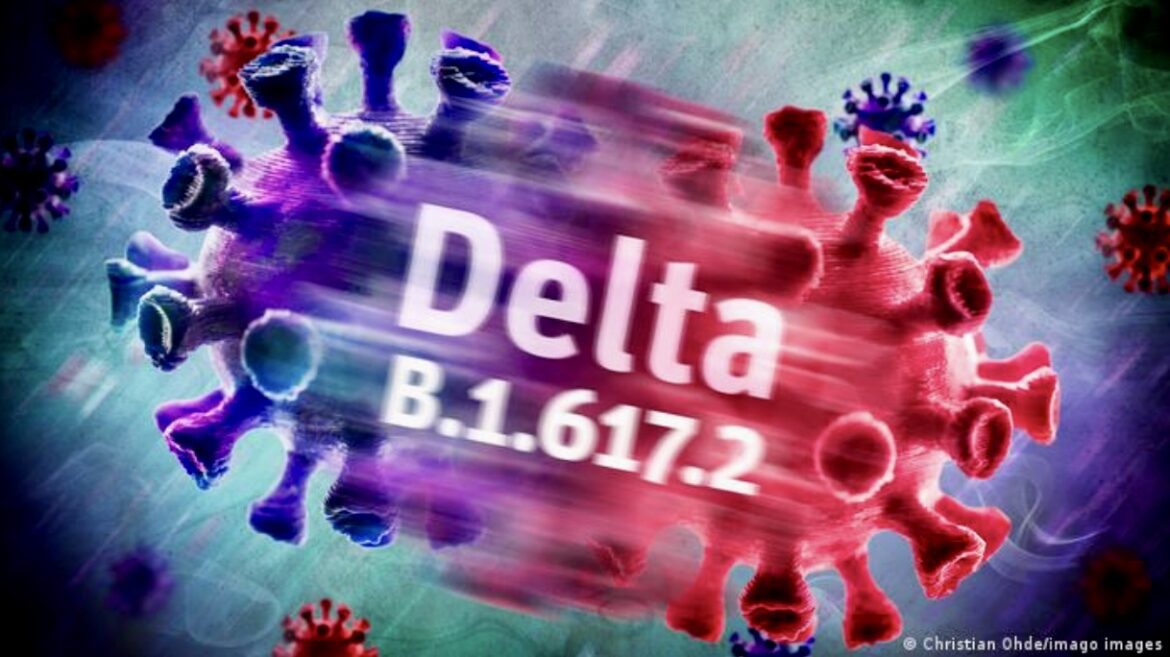Text by Henrylito D. Tacio
Photo: dw.com
In a Philippine Star report, Father Nicanor Austriaco, a biological sciences professor from the University of Sto. Tomas, says the Philippines will be back to normal again “only if the Delta COVID-19 variant is contained.”
In June 21, a press release from the Department of Health gave some status on the Delta variant cases in the country: “Three of the four additional Delta variant cases are returning overseas Filipino (ROF) from the MV Eastern Hope, a ship currently docked in South Korea.”
According to the report, the three Filipinos were repatriated back to the Philippines on June 3, “upon detection of the PCR-positive Filipino crew in South Korea.”
After their arrival in the country, “two cases have completed the 10-day isolation” and “were discharged upon certification of recovery.” As for the remaining one, he was “still admitted in a hospital in Metro Manila.”
The fourth case was also a ROF who arrived from Saudi Arabia on May 24. “The case has completed the mandated isolation, tagged as recovered on June 10, discharged thereafter from the isolation facility, and is now under strict home quarantine as per protocols of the LGU of destination.”
All in all, the number of Delta cases in the country was 17. All came from other countries. “There is still no community transmission of the Delta variant (in the country),” Dr. Edsel Maurice Salvana posted in his Facebook account.
Delta variant (B.1.617.2) was first detected in India in late 2020. It got its current name in May this year from the World Health Organization (WHO), which names notable variants after letters of the Greek alphabet.
Dr. Salvana, director of the Institute of Molecular Biology and Biotechnology at the National Institute of Health at the University of the Philippines, said that “(delta variant) likely drove the Indian surge in April, sickening more than 300,000 per day and killing over 4,000 per day,” Dr. Salvana reported. “It is 60% more transmissible indoors, and up to 40% more transmissible outdoors.”
The Delta variant is causing surges in the United States, United Kingdom, China, and Indonesia. “In the United Kingdom, the variant is now responsible for 90% of all new infections,” Associated Press science writer Aniruddha Ghosal reported. “In the US, it represents 20% of infections, and health officials say it could become the country’s dominant type as well.”
The United Nations health agency is very much concerned with this latest development.
In a regular briefing recently at the Geneva office, WHO Director-General Tedros Adhanom Ghebreyesus told journalists that the Delta variant has been identified in at least 85 countries and is “spreading rapidly among unvaccinated populations.”
“As some countries ease public health and social measures, we are starting to see increases in transmission around the world,” he was quoted as saying.
A surge in cases translates to more hospitalizations, which continue to stretch healthcare workers and health systems while putting more at risk of death, according to the WHO chief.
He acknowledged that new variants are expected, saying “that’s what viruses do, they evolve” and stressed that “by preventing transmission, we can stem the emergence of variants.
“It’s quite simple: more transmission, more variants. Less transmission, less variants,” Tedros spelled out, upholding that it is even more urgent today to prevent transmission by consistently using public health and social measures along with vaccines.
“This is why WHO has been saying for at least a year that vaccines must be distributed equitably, to protect health workers and the most vulnerable,” he said.
In the same press briefing, Dr. Maria Van Kerkhove, WHO technical lead on COVID-19, said, “the world situation is very fragile” and “countries must be cautious.”
Noting that the Delta variant has proved “extremely contagious in any country it reaches,” she cautioned that it is being transmitted among unvaccinated people, “even in countries with high percentages of immunization.”
“The delta variant can make the epidemic curve exponentially,” added Dr. Van Kerkhove. But the Delta variant is not the only worrying mutation. “There is a constellation of variants circulating,” including sub-variants, four of which are very worrying,” the WHO expert said.
“Vaccines and treatments work, but these viruses can evolve” she said, and the existing shots “may not work” over time, emphasizing again that to minimize outbreaks, everyone must continue to maintain public health measures.
Dr. Salvana said that the biggest risk for entry for variants is poor border control. “When Taiwan decreased their quarantine protocols for unvaccinated pilots to three days with testing, they ended up with a large surge,” he said, adding that a recent Delta case in Australia has been linked to a driver who interacted with international flight crews.
“Public health measures including face masks and face shields, strict border quarantine, and vaccination policies are anchored on real science and will save lives,” pointed out Dr. Salvana, who was trained in infectious diseases and tropical medicine at the University Hospitals Case Medical Center in Cleveland, Ohio. “This is not a popularity contest. The virus doesn’t care if it’s election season. It will kill people regardless of who you support. Let’s all protect each other.”

